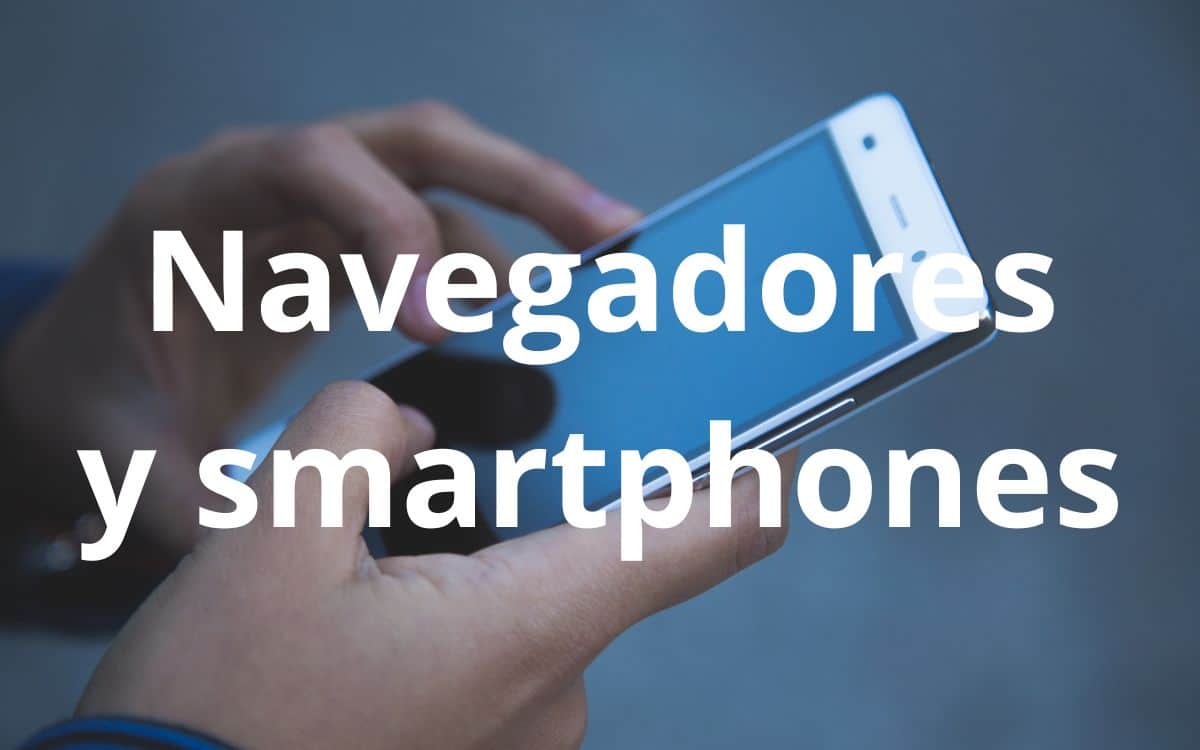
hand with smartphone
The relationship between browsers and smartphones is very close. While the former are still the most widely used type of software for accessing the web, the latter have replaced computers as the preferred devices for connecting to the Internet.
I am reviewing A study of the Mozilla Foundation according to which users have little control when choosing which browser to use. En articles Previously, I have already commented on some important points such as the way in which the operating systems, browsers and services that we choose mutually condition the choice of others.
Browsers and smartphones. What is the relationship?
To illustrate the close relationship between the smartphone used and the chosen browser, Mozilla cites two anonymous users. A 34-year-old American tells us:
I don't really like Safari, I just never liked it. Sometimes it shows up on my phone, sometimes you open certain pages and it just shows up.
Another 26-year-old American tells us:
When something opens in Safari, I switch it to another browser. I just copy and paste
At this point, I think there is one thing to keep in mind. Apple sells a consistent experience in which hardware or software is integrated. You may or may not like that kind of closed ecosystem, but no one is forcing you to buy it or develop products for that platform.
Different is the case of Android, Google's operating system has an open source base so it is theoretically possible to select which applications to install. Nevertheless, To obtain Google certification and compatibility with its services, it is necessary to include the official applications by default. Quoting the Mozilla study:
Another way that operating system vendors override browser choice is through the web page rendering component.
Android app developers often embed a "view component" into their apps that is capable of rendering web pages.. For example, if a user opens a link in the Facebook or Twitter app, he or she will open a web page that can be viewed in the Facebook or Twitter app. To achieve this experience within the application, a component that Google makes available to Android developers called WebView is used.ue is configured to always render pages using the system browser engine
(Chrome/Blink). Android WebView cannot be configured to use any alternate providers.
This practice also generates an alteration in the statistics of use of browsers. since the visitor statistics compiler programs record it as coming from Google Chrome.
In the first article in this series I complained about Mozilla's lack of self-criticism, and we'll look at another example below. Referring to the consequences of market concentration, in the particular case of devices phones, the study states:
Android and iOS remain the dominant mobile operating systems for smartphones (after failed market entry attempts by other companies, including Mozilla. The requirements to create native apps for their operating systems ensured that developers had little or no incentive to also develop for competing mobile operating systems. Most of those who tried failed quickly. This includes Amazon's Fire OS, Microsoft's Windows Phone, and Mozilla's Firefox OS.
Let's take a closer look at this. Microsoft had a mobile operating system long before Android. However, he never believed in that market and therefore it did not make an effort to make versions of its applications such as Microsoft Office with features similar to those of desktop computers.
Ubuntu Touch could have been a serious competitor, especially if Mark Shuttleworth's original idea of developing his own hardware had come to fruition. Nevertheless, there was never a complete documentation on how to develop software and the development environment had problems that were never fixed. The mobile device offer was also not very attractive and was technically behind schedule.
FirefoxOS crashed due to an error in choosing trading partners. In Argentina, for example, Movistar, instead of emphasizing its security and privacy features, sold it as a phone that allowed you to do the same thing you did with your Android phone. Except chatting on WhatsApp or uploading your photos to Instagram.